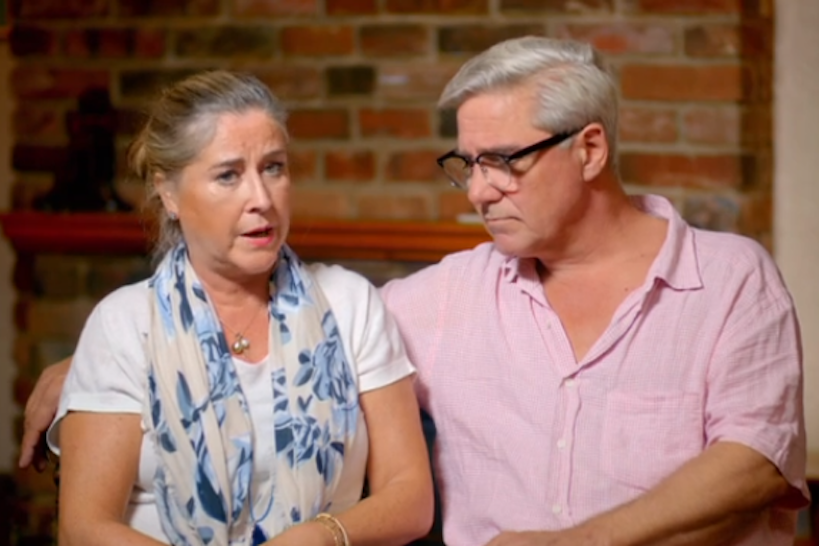The story of medical cannabis is usually framed around a patient’s personal situation to try and allow people to see what it must be like to suffer from an illness where the medication is illegal to access. However, in Channel 4’s ‘Steph and Dom: Could cannabis save our son?’, the story is framed around the parents giving a true insight into the emotional and complicated process of understanding the science, the laws, the risks and the red tape you come up against when trying to gain access.
Steph and Dom are radio presenters and known for appearing on the TV show Gogglebox. They share their story of living with Max, their 18 year old son who suffers from epilepsy. His seizures can happen up to 100 times a day and could result in a sudden unexplained death. Since the age of around four Max has been taking a trial and error lifestyle of dependence on anti-epileptic drugs, none of which have made any significant impact on halting the seizures which started when he was still just a baby. The seizures became more violent over time.
“The damage that can be done is catastrophic to the brain… It’s like the death of the future of your child because he isn’t going to ever have a normal life,” says Steph.
In a moment in the hospital with Max’s neurologist his parents are discussing the severity of his symptoms, which are increasing, when suddenly Max has a seizure on camera.
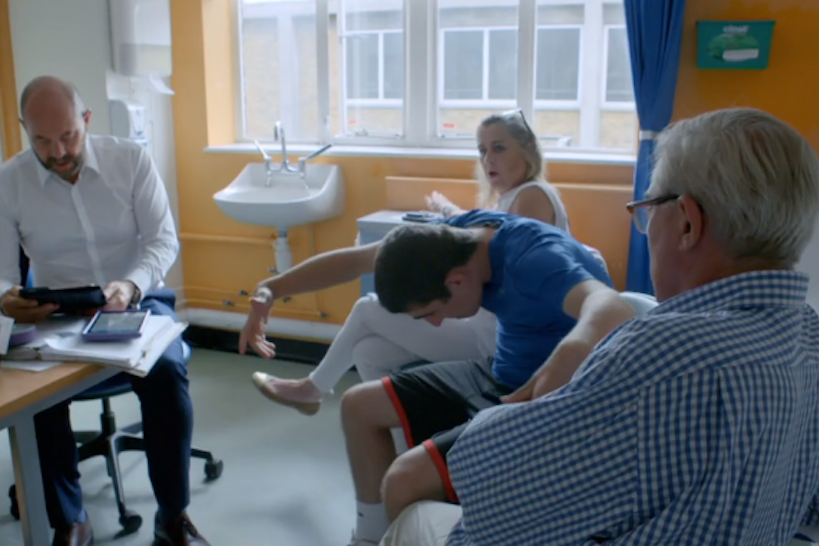
Max clearly loves to engage with his family but also very clearly has the mental age of a child. Steph and Dom look over the medication he is on, reading the side effects: “… drowsy, irritable, slurred speech… it’s quite incredible how many toxins a child can take… this one they give to inpatients on death row.”
Dom questions, “Are these causing more problems than they are solving?” while Steph replies, “Are they preventing him from having one big one that kills him?” They admit that they would really like to just have a normal conversation with their son and they want to know if something else can help.
The story is told during the six-month timeframe in which the Home Office was being pressured into changing cannabis policy to allow specialists to prescribe it, so Steph and Dom’s journey takes a real look into the situation hundreds of parents are going through right now.

This important perspective is not unique. Epilepsy doesn’t just impact the lives of children; there are over 200,000 adults with epilepsy in the UK and while not every one of them will get help from cannabis it indicates that there are nearly a quarter of a million people with this disorder alone that may want to try it. But where do they turn?
Steph and Dom start investigating the legal CBD market online and Dom even tried a CBD tincture from Holland & Barrett. They then discuss the tincture with Max’s neurologist and he explains that it is 100-times weaker than the doses they would want to start with. The neurologist said the long term side effects are unknown but that they do see improvement in quality of life: “We do see promise and max is in the category of people that this promise exists.”
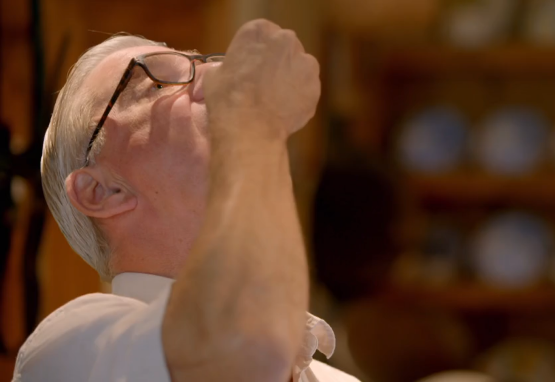
This seemed like a promising meeting for the worrying parents who then made moves to speak to two of the parents that have made headlines over medical cannabis and epilepsy in the UK.
Charlotte Caldwell explained the journey she has been on with her son Billy. The most touching moment for Steph and Dom to hear was being told that eventually Billy started to come to her for cuddles for the first time, bringing tears to all three. Almost on queue Billy walked in and wrapped his arms around his mum. Emotions ran high. It is at this point where you have to hope the audience, if in any doubt, start to start feel some deep compassion for the plight families are being put through by the Home Office and NHS specialists.
Max has a carer and while on an outing being filmed in the car he suffers another seizure. As his carer pulls over to help Max come around you get a sense of how sudden it can be, how scary it is. The overwhelming fear that this could be the one that kills him must be a haunting feeling that never goes away. To think there is something out there that could possibly prevent or reduce these seizures dramatically, yet is denied, is as equally distressing.
But families want to do the right thing, they want to be lawful. They want the best for their children and loved ones. They trust the Government has their best interest at heart but sometimes it takes extraordinary strength and power to stand up and be the ones that tell the Government they aren’t acting quickly enough. For epileptic patients as severe as Max and Alfie Dingley, there really is no more time.
Steph and Dom went to the US to meet Sam, a patient with epilepsy very similar to Max’s. Sam said he too had tried every drug on the market with some seizure relief for short periods but never for long.
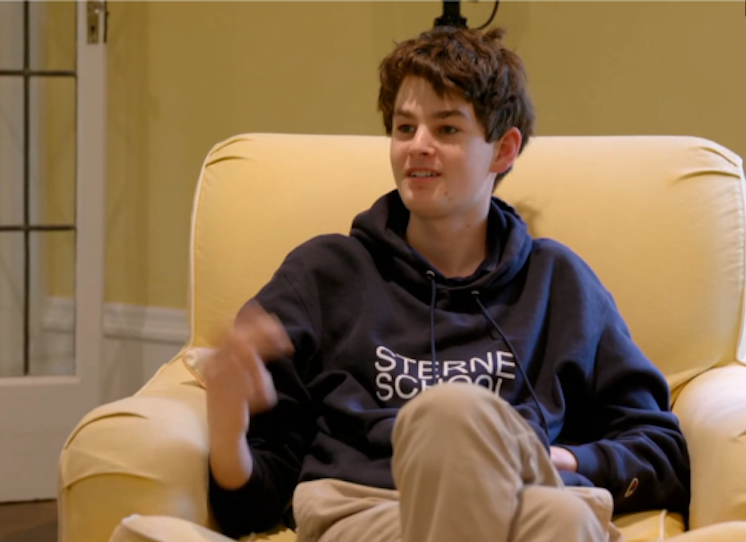
His parents struggled to find a CBD tincture that didn’t contain any THC, or that actually contained the amount of CBD on the label, which left them fearful of using anything on Sam. In the end Sam became the first person to trial Epidiolex, the GW Pharmaceuticals Cannabidiol only extract produced at the British Sugar facility in Norfolk. Sam went from nearly 70 seizures a day to none with no side effects, and recovered cognitive ability.
While Sam’s parents were against the idea of giving him THC because the neurologist said it damaged the developing brain, this isn’t what most parents treating their children have found. A number of UK children including Murray Gray have tried Epidiolex, but it did not result in stopping the seizures. His mother Karen Gray is campaigning to receive Bedrolite from Bedrocan, which Alfie Dingley has had success with.
Hannah Deacon, mother of Alfie, also stood in the spotlight during the campaign for medical cannabis. Alfie has 2mg a day of THC as well as CBD. “The only side effects he’s had are good, he hasn’t ever gotten high,” she told Steph and Dom. “Having seen the change in my child I don’t want any others to suffer.”
After Dom said his next step would be to start off Max with CBD and then look at starting THC if needed, Hannah replied that “it’s got to be worth trying”.
Finally Steph and Dom video-call Max’s neurologist again to discuss a prescription of Epidiolex when it becomes available, on “compassionate grounds”. This is slightly confusing. This is a licenced, MHRA-approved medicine and is costing the NHS around £32,000 a year. Shouldn’t all medicine be granted on compassionate grounds? Steph walks away in tears saying, “it’s so harsh to hear”. While they have an agreement and a plan… when can they get it? Max cannot wait!
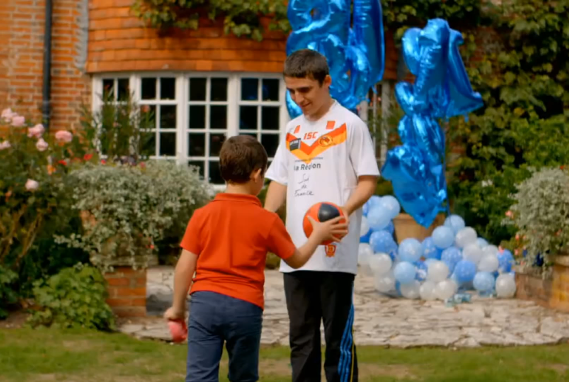
At the end of this poignant documentary, Max celebrates his 18th birthday, an age his parents feared he would never live to.
“Will cannabis oil save our son’s life? Probably. Will it cure him? No, but we’ll give it a try,” says Dom.
If you are in a similar situation to Steph and Dom, with a family member that is unable to get support from a neurologist, what do you do?
For some, waiting just isn’t an option. A large number of members of the UK Cannabis Social Clubs who have an epilepsy diagnosis have turned to CBD isolate products available through their clubs. Members are encouraged to grow their own or offered to become part of a patient collective where they can access trusted cannabis products grown by a patient orientated community.
Thank you all so much for watching our story – we fight for Max and for all the other Max’s out there #StephandDomCannabis
— Steph and Dom (@stephanddom) 28 January 2019
Dom explains in the end that despite legalisation in November, they, like other families, are still unable to access Epidiolex and Bedrocan. What is holding up this serious dilemma for patients?
Britain must love bureaucratic nightmares more than potential patient relief and saving a person’s life.
Here is a list of all the studies on epilepsy and cannabis that are published along with some advice on how to speak to your neurologist about gaining access to a prescription.

